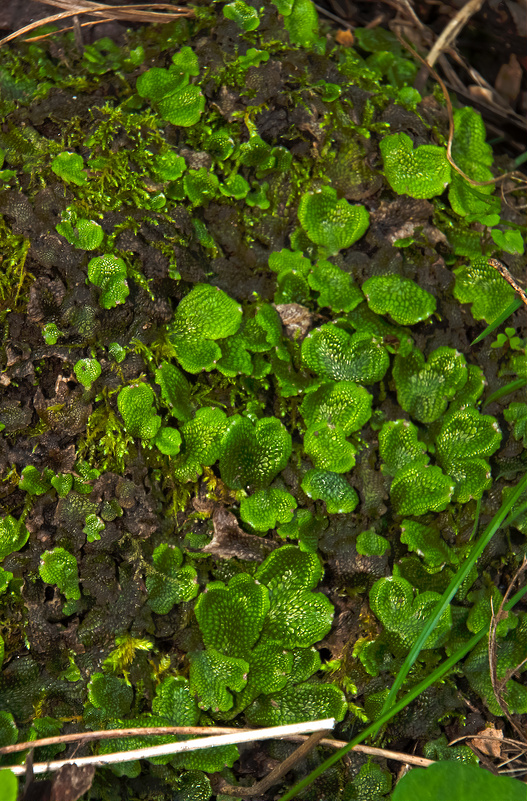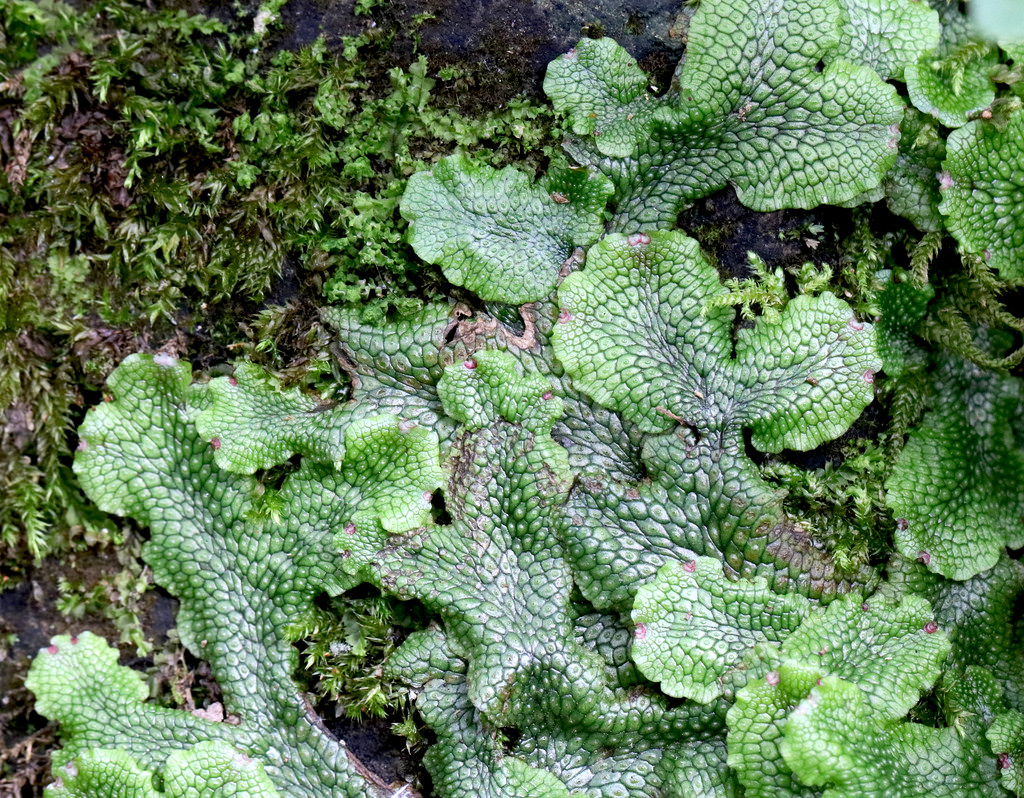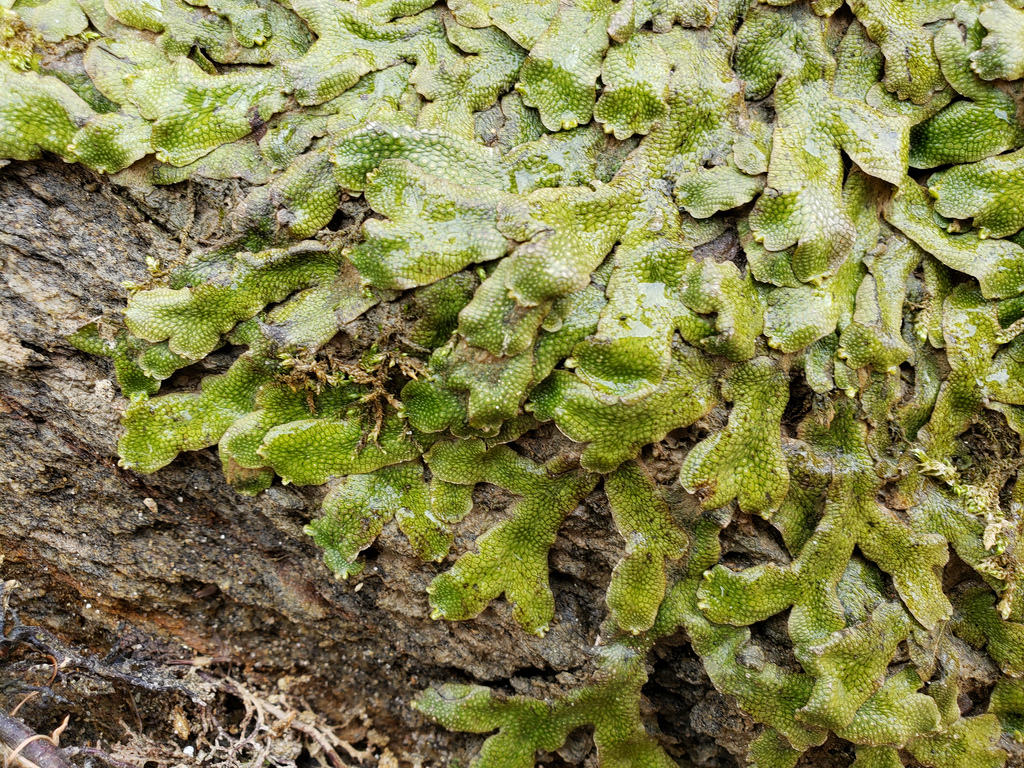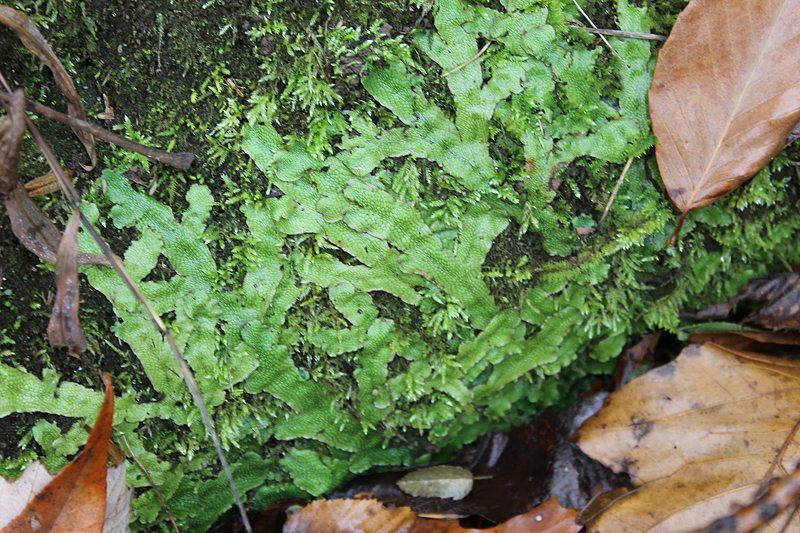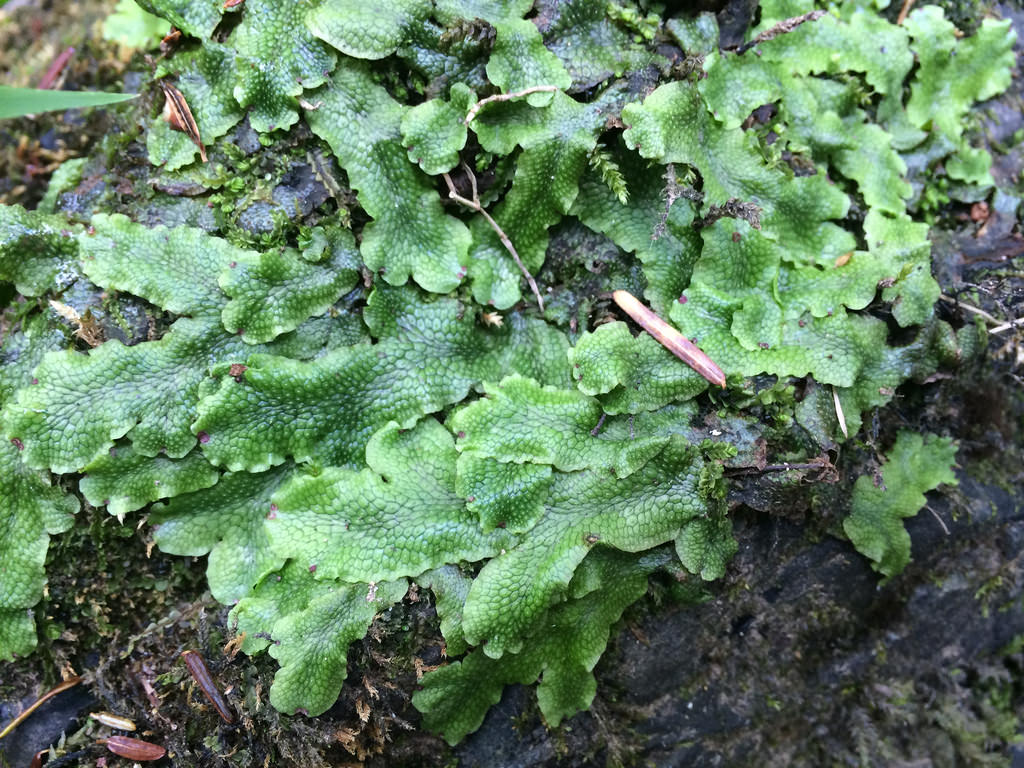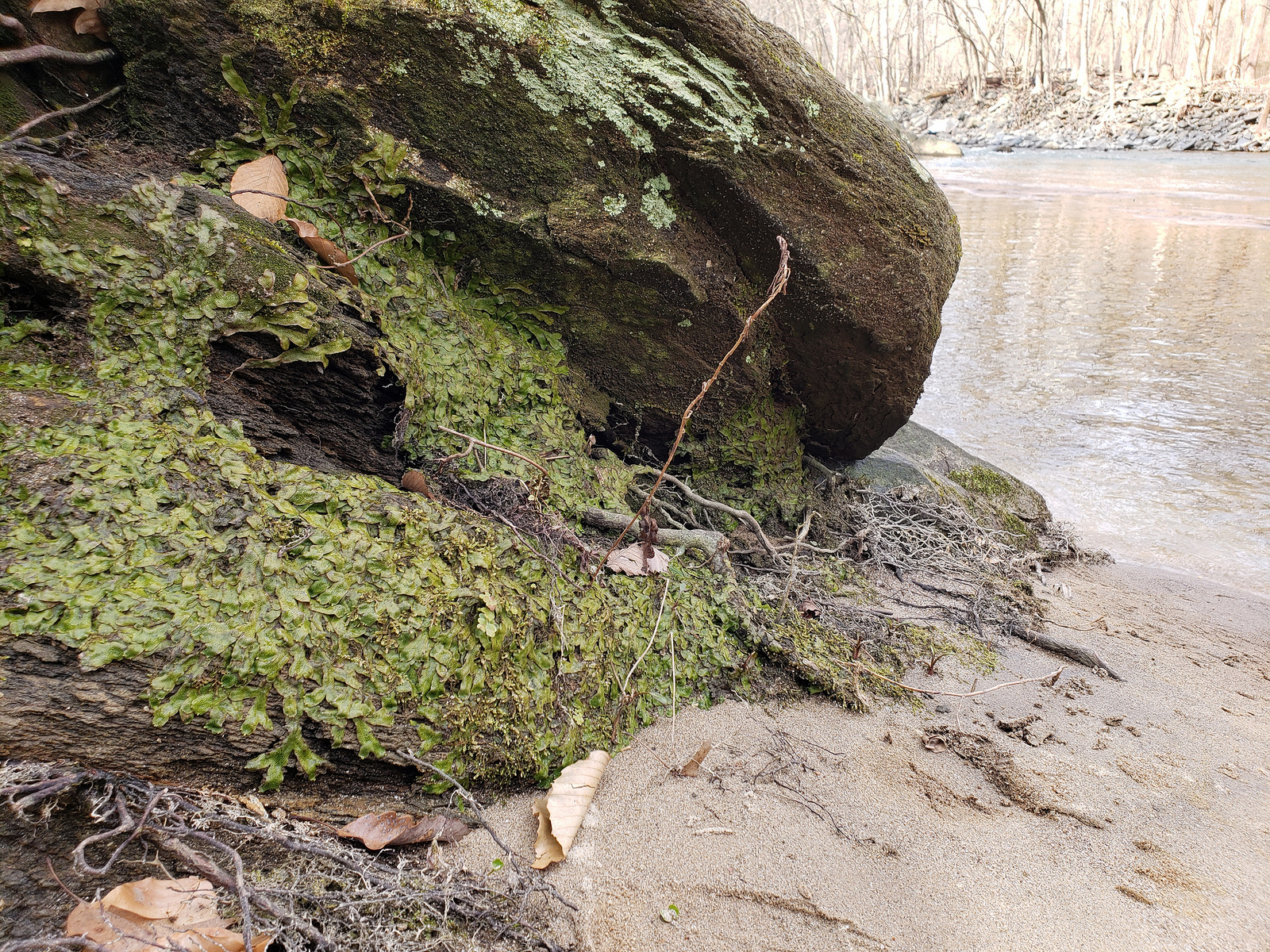Map Snapshot













128 Records
Status
Formerly considered Conocephalum conicum, but recent research indicates that C. conicum is strictly found in the Old World.
Description
This is the largest marchantioid liverwort in Maryland, sometimes measuring more than 1 cm wide. The thallus is thick and has a distinctive surface pattern.
Where To Find
Snake-skin Liverwort can be found growing over stone or thin soil along rivers and streams throughout the mountains and piedmont of Maryland. Apparently less common on the coastal plain.
Seasonality Snapshot
Source: Wikipedia
| Conocephalum salebrosum | |
|---|---|

| |
| Scientific classification | |
| Kingdom: | Plantae |
| Division: | Marchantiophyta |
| Class: | Marchantiopsida |
| Order: | Marchantiales |
| Family: | Conocephalaceae |
| Genus: | Conocephalum |
| Species: | C. salebrosum
|
| Binomial name | |
| Conocephalum salebrosum Szweyk., Buczkowska & Odrzykoski
| |
Conocephalum salebrosum, commonly known as snakewort, is a species of liverwort, a non-vascular land plant, with a broad, holarctic distribution.[1] It is also known as snakeskin liverwort, cat-tongue liverwort, mushroom-headed liverwort, and great scented liverwort.[2]
Species of Conocephalum are arranged into the Conocephalum conicum complex, which includes several cryptic species.[3]
C. salebrosum grows in shaded to part-shade habitats in wet or moist conditions, often on rock surfaces or thin soil.[2]
Distribution and habitat
[edit]C. salebrosum is commonly found throughout North America[4][5] and occurs in moist, shaded and calcareous habitats. In contrast to Conocephalum conicum, C. salebrosum is more tolerant to desiccation and can grow in areas with less shade.[4]
References
[edit]- ^ "Name - !Conocephalum salebrosum Szweyk., Buczk. & Odrzyk". legacy.tropicos.org. Retrieved 16 May 2020.
- ^ a b Hilty, John. "Snakeskin Liverwort (Conocephalum salebrosum)". www.illinoiswildflowers.info. Retrieved 16 May 2020.
- ^ Szweykowski, J.; Buczkowska, K.; Odrzykoski, I. J. (2005-06-01). "Conocephalum salebrosum (Marchantiopsida, Conocephalaceae) – a new Holarctic liverwort species". Plant Systematics and Evolution. 253 (1): 133–158. doi:10.1007/s00606-005-0301-0. ISSN 1615-6110.
- ^ a b "NatureServe Explorer 2.0". explorer.natureserve.org. Retrieved 2022-01-30.
- ^ Stotler, Raymond E.; Crandall-Stotler, Barbara (2017-12-29). "A Synopsis of the Liverwort Flora of North America North of Mexico". Annals of the Missouri Botanical Garden. 102 (4): 574–709. doi:10.3417/2016027. ISSN 0026-6493.


